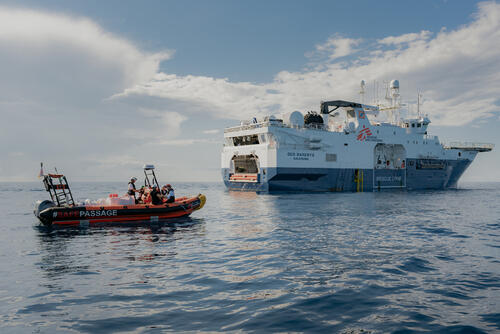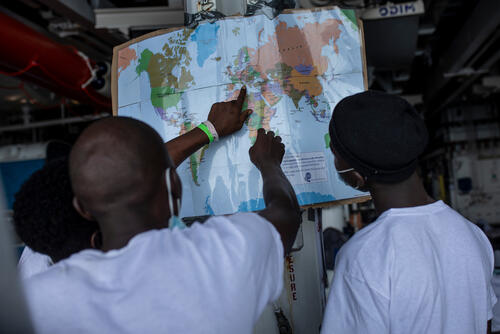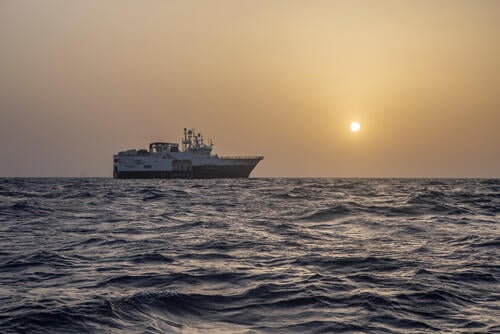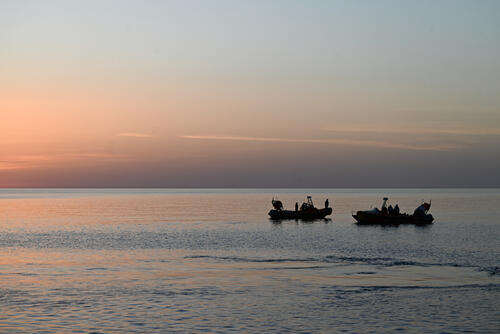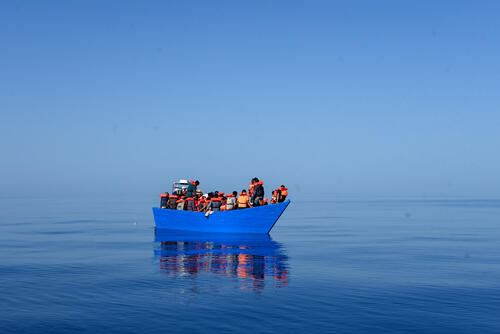Médecins Sans Frontières’ (MSF) self-chartered vessel, the Geo Barents, has been running search and rescue activities in the Central Mediterranean Sea for one year. In this year, we have rescued 3,138 people and have provided 6,536 medical consultations onboard.
Our new report, Left to Drown in the Southern European Border: One year of Geo Barents at sea, provides testimonies and medical data that show the violence inflicted on people in Libya and the suffering caused by Europe’s policies of deterrence and non-assistance at sea.
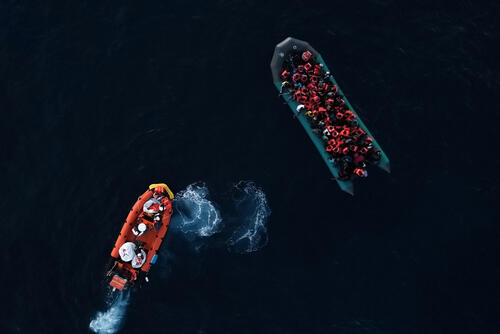
Search and rescue operations continue to be needed. The figures on Central Mediterranean migration, which represent human lives, cannot be understated. Between 2017 and 2021, at least 8,500 people have died or gone missing and 95,000 people have been forcibly returned to Libya. In 2021 alone 32,425 people were returned to Libya, which is the highest number of forced returns to date. In Libya, rescued people face degrading treatment, like extortion, torture, and often die as a result of mistreatment.
Following last week’s tragic rescue, we see again that the reality at the southern European border has not changed. European states are normalising policies of deterrence and non-assistance at sea, as well as dismantling the state-led search and rescue system in favour of forced returns. These acts continue to cause human suffering and loss of life.
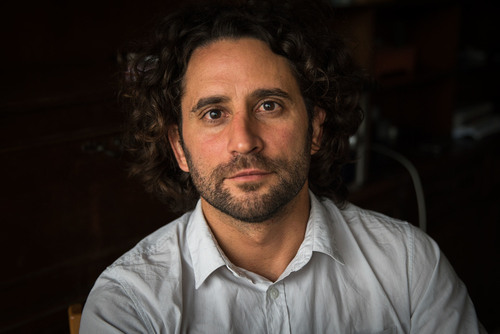
“By failing to provide adequate proactive search and rescue capacity and propping up the capacity of the Libyan coastguard, European states are undeniably supporting forced returns to Libya, where detention and abuse are the norm,” says Juan Matias Gil, MSF search and rescue representative. “MSF’s presence in the Central Mediterranean is a direct result of the continuing shameful disengagement from European state-led search and rescue naval capacity in the Mediterranean Sea.”
Many survivors have shared testimonies on their experience in Libya, whether before their attempt to cross the Central Mediterranean or after having been forcibly returned. Our new report documents these testimonies, providing insight on the violence inflicted on refugees, asylum seekers and other migrants in Libya.
Since the start of Geo Barents’ search and rescue operations in June 2021, we have also continued to witness the normalisation of stand-offs at sea and the distress that this practice creates. Our requests for a place of safety to disembark survivors have been systematically ignored or denied by the Maltese authorities, while those to Italian authorities have been met with increasing delays.
Stand-offs prolong the suffering of the survivors, while also impeding their ability to receive timely and full medical assessments.
Changing this deadly migration policy is possible and necessary. Europe has demonstrated in through the crisis in Ukraine that it can implement a humane approach to forced migration. The protection of everyone’s life should apply regardless of race, gender, country of origin, political or religious beliefs, and equal treatment.
The people arriving at Europe’s door must be met with dignity and respect for their rights.
For more information on our first year of search and rescue operations on Geo Barents, please read our full report.
MSF has been running search and rescue activities in the Central Mediterranean since 2015, working on eight different search and rescue vessels (alone or in partnership with other NGOs). Overall, MSF search and rescue teams in the Central Mediterranean have assisted more than 80,000 people. Geo Barents is MSF’s current chartered search and rescue vessel.
Between June 2021 and May 2022, the ship sailed out 11 times and conducted 47 rescue operations, rescuing 3,138 people and recovering the bodies of a further 10 people who had died in the sea. MSF teams on board conducted 6,536 medical consultations for primary health care, sexual and reproductive health, and mental health.
34% of the survivors rescued were children, out of whom 89% were unaccompanied and/or separated from their families. 265 people reported to our teams having suffered some form of violence, torture, or ill treatment, and 63 people among them reported having suffered sexual and other forms of gender-based violence.
Our medical and humanitarian teams also recorded 620 incidents of violence perpetrated against or witnessed by the people rescued that included physical assault, torture, forced disappearance, kidnapping, arbitrary arrest and detention mainly in Libya but also during their often-multiple interceptions and forced returns by the Libyan coastguards.



